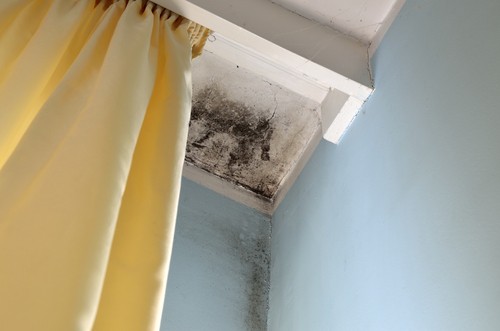Will Air Conditioning Remove Humidity in Singapore? [Healthy Living]

Will Air Conditioning Remove Humidity in Singapore? Usually, we rely on air conditioning to control the temperature on our premises. However, an air conditioner can do much more. It can help you regulate temperature, ventilation, and humidity. The question then arises is, will air conditioning remove humidity in Singapore?
The weather in Singapore is hot and humid for most of the year. That is why this question is pretty significant. Today, we will answer this question and provide you with other associated information to make a better buying decision when it comes to air conditioners.
Will Air Conditioning Remove Humidity?

Yes, it can reduce humidity in Singapore. It cannot eliminate humidity. However, in the normal mode, the ability of the air conditioner to bring down the humidity is pretty limited.
The usual working modes of the air conditioner are good enough for humidity levels up to 60%. When the humidity levels are greater than that, it is better to use the aircon dry mode. In Singapore, the mean average humidity is around 83.9%. When there is prolonged rain, the humidity levels can be as high as 100%.
We will go into the details of this dry mode below. Before that, however, it is time to understand the ideal humidity level in Singapore before that.
Ideal Home Humidity Level in Singapore:

As highlighted above, the average mean humidity level in Singapore is 83.9%. This brings up a very crucial question, what should be the ideal home humidity level? When the exterior humidity is as high as 84%, the home humidity would be around 70 to 80% at least.
An air conditioner needs to reduce this to 60 to 70% to maintain the temperature and comfortable conditions inside the home. This is where the Aircon dry mode comes into the picture. We will help you understand what it is below.
What Is Aircon Dry Mode? (When to use it?)

The dry mode of aircon provides the room with a cool layer and removes the moisture from the air, thereby providing you with a dry area. In a way, it starts functioning as a dehumidifier.
You can activate this mode using the remote control which comes with the aircon. In a country like Singapore, the dry mode certainly comes to your rescue during prolonged rain. You might be thinking, why is maintaining humidity so important indoors?
To understand this question, it is important to know how high and low humidity will affect your home. We will cover this below.
How High/Low Humidity Affects Your Home?

• Humidity:
If your home is persistently exposed to 65% or higher humidity levels, mold and mildew growth are encouraged. Wallpapers, paintwork, brickwork, and furniture suffers from extensive wear and tear due to the high ventilation.
High humidity also means that the aircon will have to work extra hard to cool down your home. Consequently, your utility bills will go up if the humidity level is consistently high.
• Low humidity:
Humidity levels below 30% constitute low humidity. Consistent exposure to low humidity levels can damage wooden furniture. This happens because the moisture in the water evaporates, and the wood shrinks. The same is true for wallpaper. In a nutshell, high or low humidity both are a problem for your home.
However, in Singapore, persistent exposure to humidity levels below 30% is not that common.
However, we are trying to make that both low humidity levels and high humidity levels have their disadvantages. Because of the same, it is necessary to invest in a good air conditioner with dry mode.
The effects of humidity are not the same on everyone’s health. Below we will help you understand how humidity affects kids’ and pets’ health.
How does Humidity Affect Your Health?

Once you understand how humidity affects individuals of different age levels and your pets, you will certainly understand the importance of maintaining appropriate humidity levels in your home.
1• Kids:
High humidity levels increase the probability of kids suffering from respiratory diseases and pediatric allergies. Sensitive kids might also suffer from upset stomach aches or diarrhea if exposed to high humidity levels for a long time.
2• Pets:
High humidity levels hamper the inability of pets to cool down their body. Consequently, their body temperature rises quickly, leading to dehydration, resulting in fainting, and proving to be fatal for your pet.
3• Adults:
Adults also find it difficult to cool down their bodies when exposed to high humidity levels for a long time. Consequently, they suffer from low energy levels and fatigue. Thus, persistently high humidity levels affect everyone in your home.
Does Humidity Level At Home Affect Aircon’s Performance?

High humidity levels hurt your air conditioner. These effects include:
- More wear and tear
- Higher electricity consumption
- Need for frequent repairs
- Reduce the lifespan of the air conditioner
To avoid most side effects, it is good to buy a premium air conditioner that comes with dry mode to use when experiencing high humidity levels.
Other Ways To Improve Humidity Levels at Home:

Besides aircon, there are a few ways to reduce the humidity levels in your home in Singapore. These include:
1. Use a dehumidifier:
It is good to use a dehumidifier in conjunction with an air conditioner.
2. Always keep your home ventilated:
The lack of ventilation can increase the humidity levels in your home. Whenever possible, open the doors and windows so that the humidity levels in your home come down.
3. Install exhaust fans wherever possible:
In areas like bathroom, kitchen, etc you should install exhaust fans. Whenever using any of these areas, turn on the exhaust fan to remove air circulation and eliminate excessive moisture.
These tips will help you reduce the humidity levels in your home.
Will Air Conditioning Remove Humidity in Singapore? – Conclusion:

So, an air conditioner can reduce humidity in Singapore but cannot eliminate it. However, getting one that has a dry mode can certainly help you maintain humidity at a comfortable level. Since both high and low humidity levels have their disadvantages, now is the time to take control of the conditions inside your home and make it comfortable for everyone.




